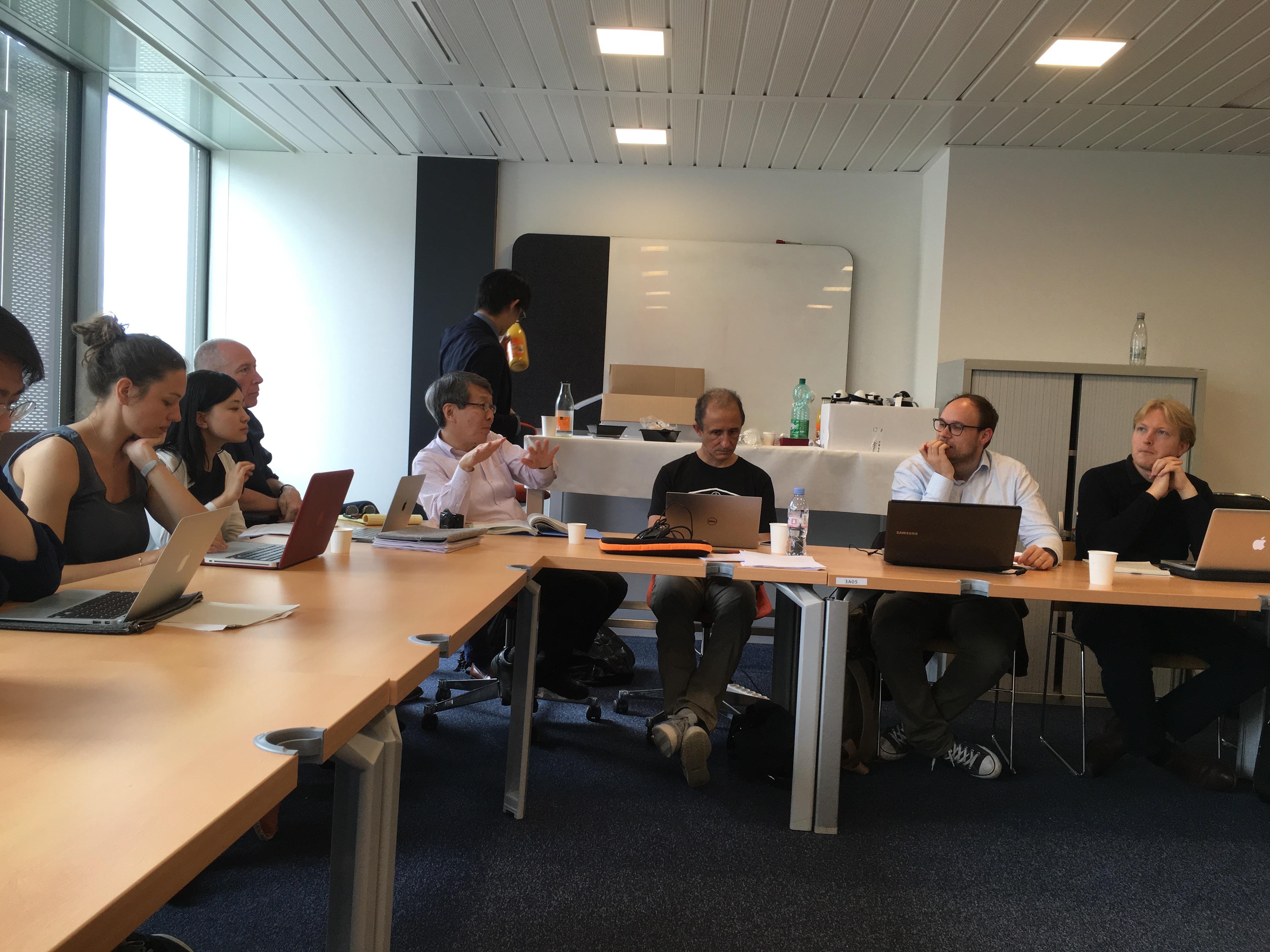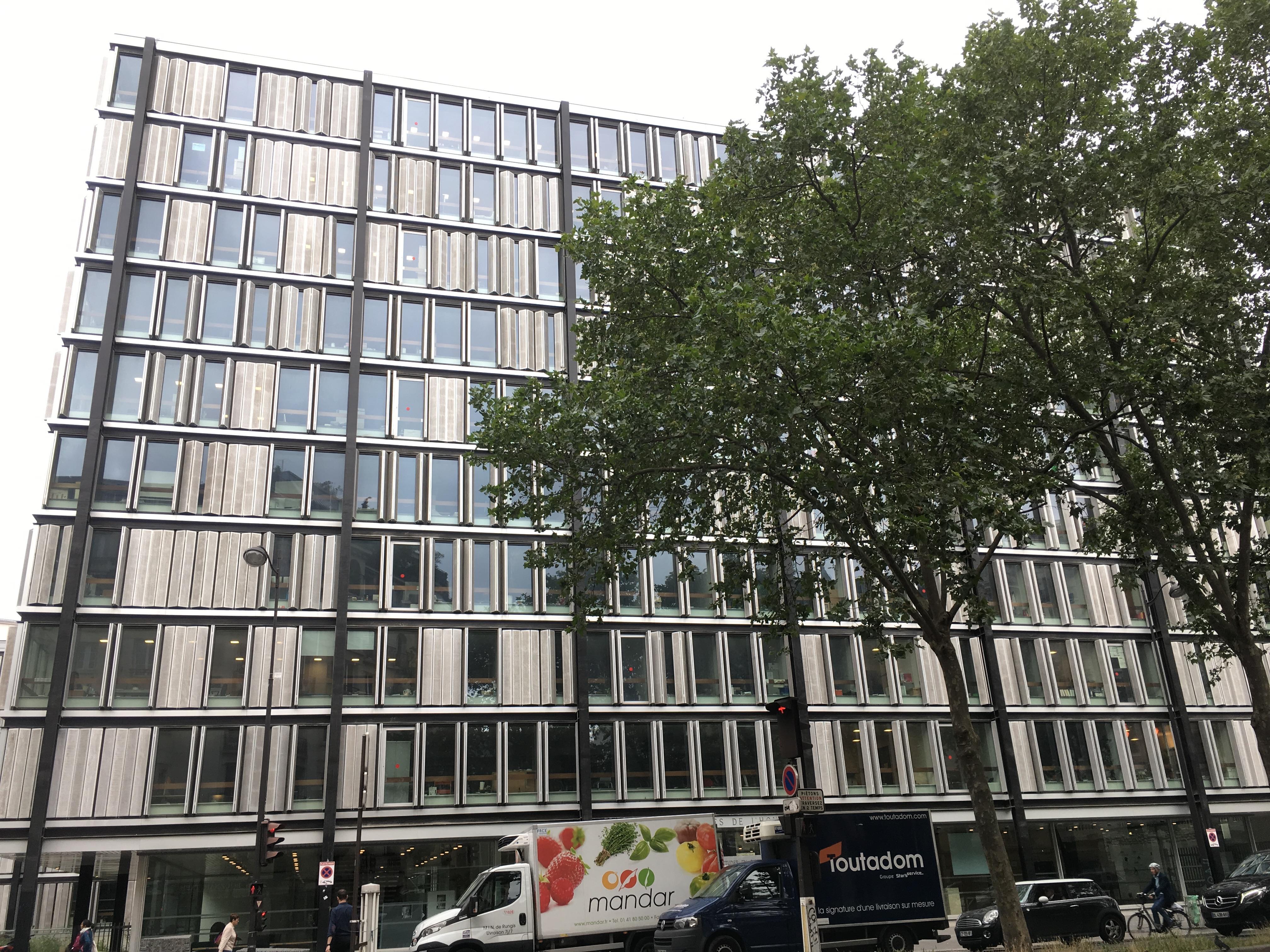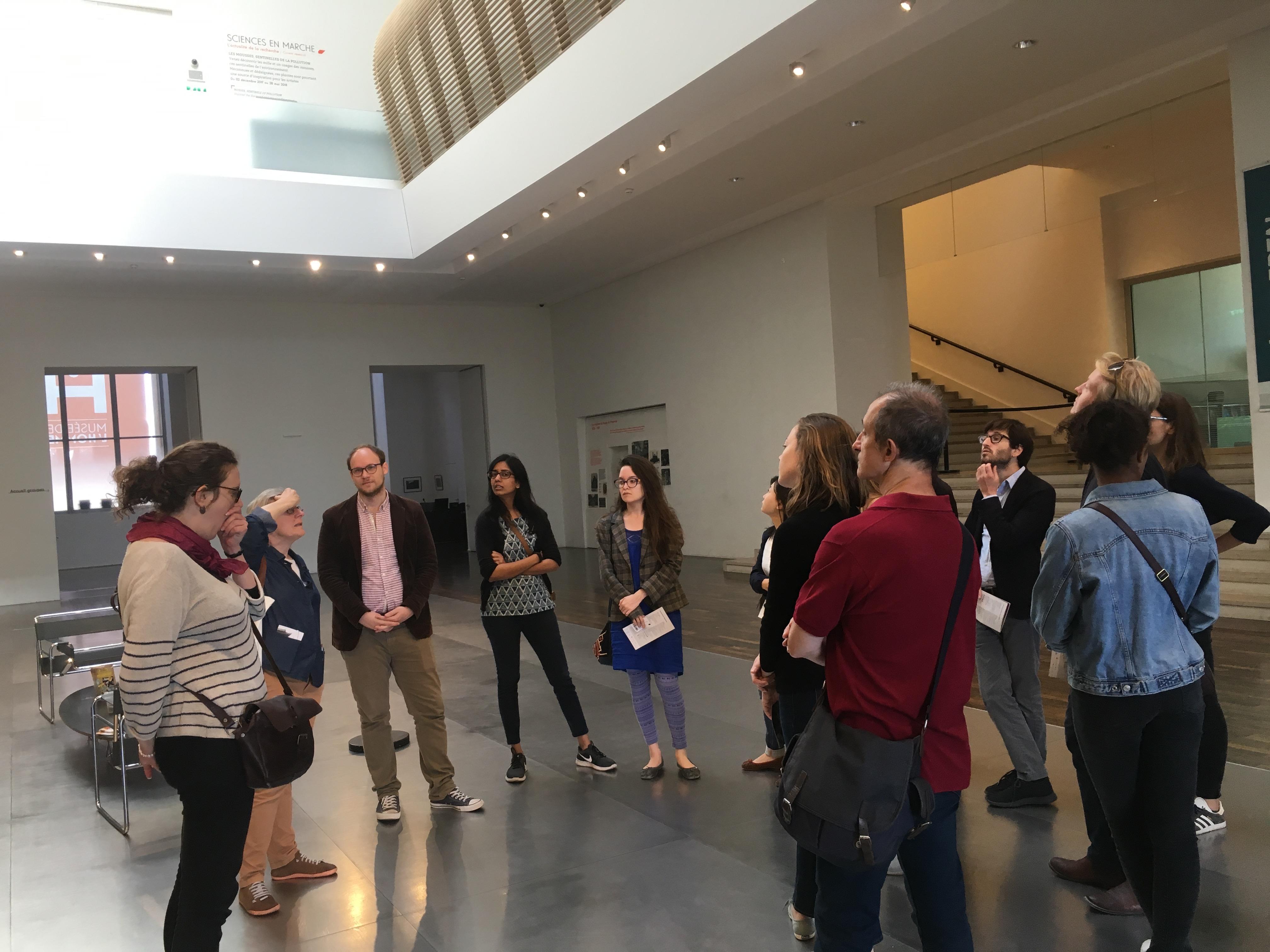2018.08.06
第4回 サマースクール報告 / GHC Summer School 2018 Report
The fourth Global History Collaborative (GHC) Summer School was held from 18th to 23rd June 2018 at École des Hautes Études en Sciences Sociales (EHESS) in Paris, France. 29 professors and students from five-member institutions (The University of Tokyo, Princeton University, EHESS, Freie Universität Berlin, and Fumbolt University zu Berlin) attended the conference where a total of 22 papers were presented and discussed. This years’ summer school witnessed the discussion of various topics on global issues as well as methodologies for historical research. A diverse range of topics were covered, ranging from the urban history of Latin America, sovereignty and narrative in modern East Europe to cultural history in East Asia.
Each day began with senior researchers’ session in the morning, followed by junior researchers’ session in the afternoon. Everyone either shared their previous work or discussed their proposals for future study. The event provided a valuable opportunity for exchanging ideas, suggestions, and critics for everyone’s studies. Participants’ papers had been circulated in advance so that in each session, after every presenter’s short introduction in 5-10 minutes, others could discuss their work for 40-50 minutes. Participants not only shared their views on the presenters’ work, but also provided useful information and suggestions as well as critiques. The diverse personal and academic backgrounds proved to be very helpful in adding new perspectives to participants’ works.
While the topics of each research might differ, we could still find some common themes for the summer school. Especially, participants paid special attention to the content and form of studies in global history. For one thing, practicing global history entails a comparative approach. We need to put our study in a global network and see how the subject of our concern interacted with subjects in other regions and times. On the other hand, global history also needs to be thought about from the perspective of forms. Participants talked about how to establish international institutions for collaborative writing and publishing. While everyone acknowledged the difficulties of realizing these plans, applicable suggestions were made that could be utilized in future GHC events.
During the summer school, there are several occasions to discuss possible future collaboration and upcoming events of GHC. This is the fourth summer school, and there have been various events and outcomes among five institutions from the last three ones. Ms. Gabriela Goldin from EHESS introduced to us that participants from the first summer school jointly published a journal issue after three years of collaboration (https://journals.openedition.org/acrh/8073). As every summer school have new participant of Ph.D. students to present, senior members shared the history as well as challenges of GHC. We came to know that one institution has developed a program on introduction of Global History for undergraduate students and online materials. Also, the Ph.D. students are encouraged to bring ideas for future collaboration and senior members will welcome to support it. Because of the relatively small number of participants, every session was conducive to lively discussions among all attendees. Participants had lunches together, which provided excellent opportunities for conversations outside formal meetings. Dinners and outings organized by EHESS also functioned as chances where old friendship was renewed and new ones were established.
Three evenings through the week, all summer school participants, professors and students included, had dinner together. This allowed us to continue discussion on the presentations we had during the day as well as some talk about some more general, like being in Paris, research environment in each institute, etc. The food was all great, and for many of us, it was an opportunity to learn more about food culture in Paris. Most importantly, all the casual talks enabled us to get to know more about each other and build up on our friendship.
On Saturday morning, we visited Musée de l’homme as an excursion program. Professor Stanziani and Professor Romano from EHESS accompanied and guided us. Before entering the museum, with everyone facing the landmark Eiffel tower, Prof. Romano gave a rather detailed introduction on the historical background of the museum, with regard to its founder Paul Rivet and another important figure, France’s former president, Jacuques Chirac. The exhibition is organized by three simple but profound questions, “who are we, where do we come from, where are we going”, with objects on evolution, unity and diversity, and cultural and social expression of humankind. And Prof. Romano’s introduction gave us a window also to understand the development the anthropology and ethnology discipline in France. After the visit, we all went to a nearby café and had our last moment together, talking, laughing, reflecting over lunch and bid farewell to each other after.
Although there is only a year left for under the current scheme, the University of Tokyo will be the organizing both the third winter school with Princeton and the fifth summer school in 2019. GHC members of Japan will act together and be ready to welcome participants in the upcoming winter and summer schools.





















